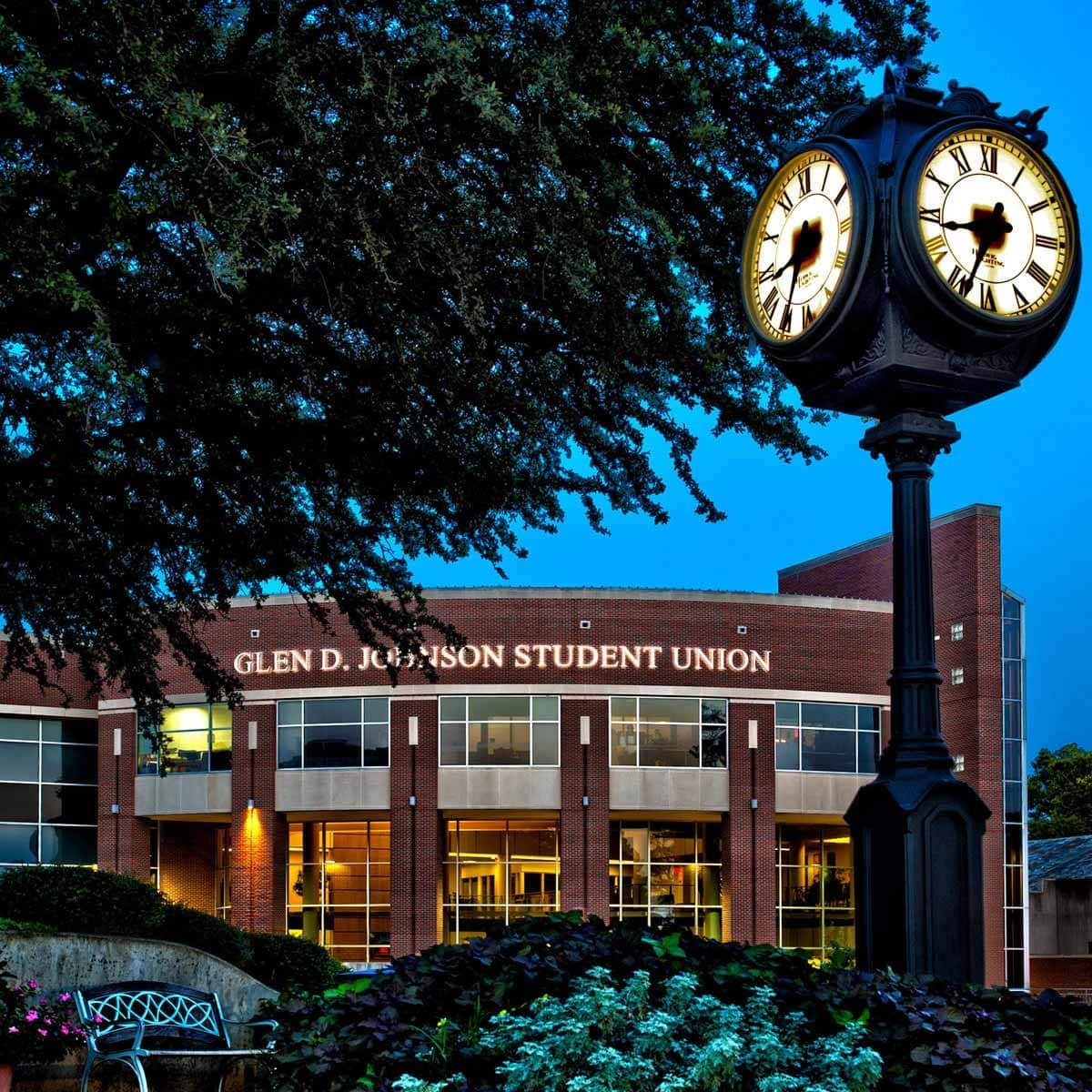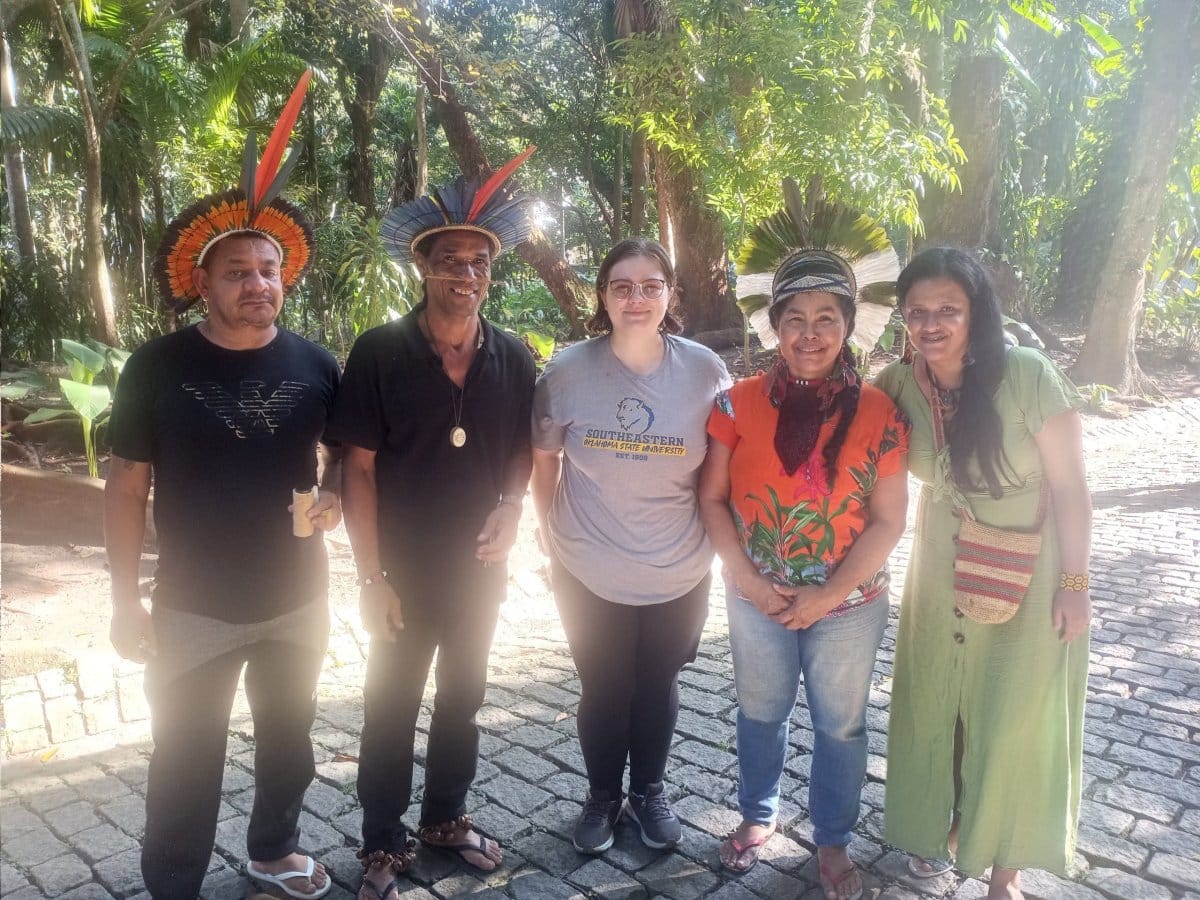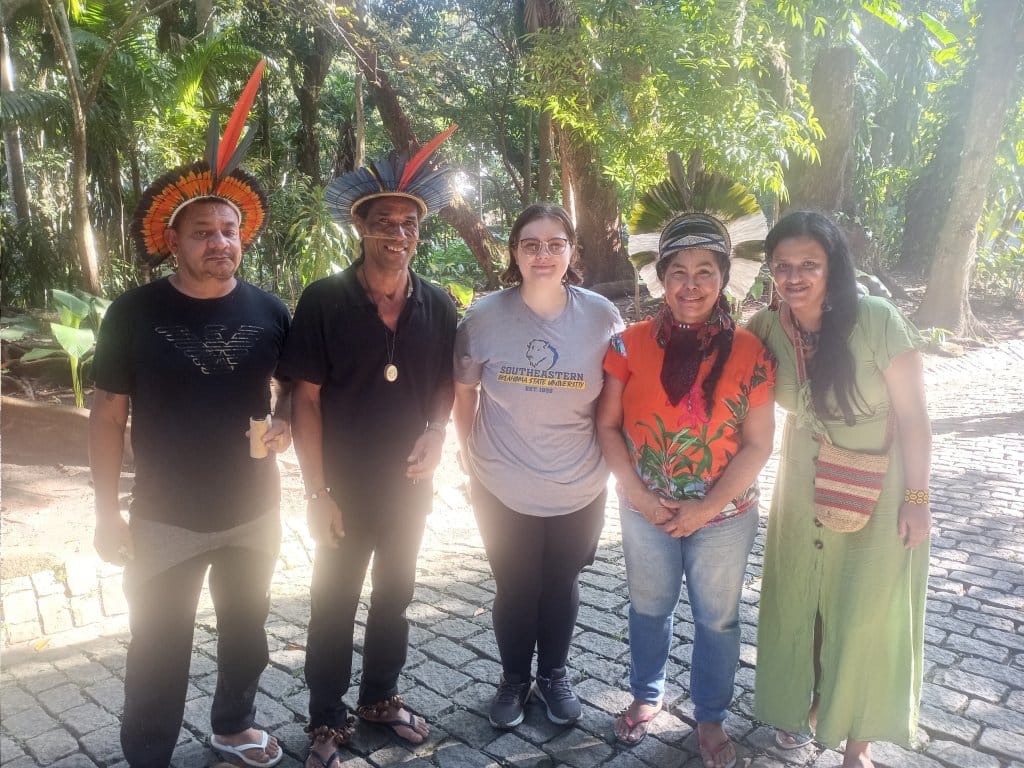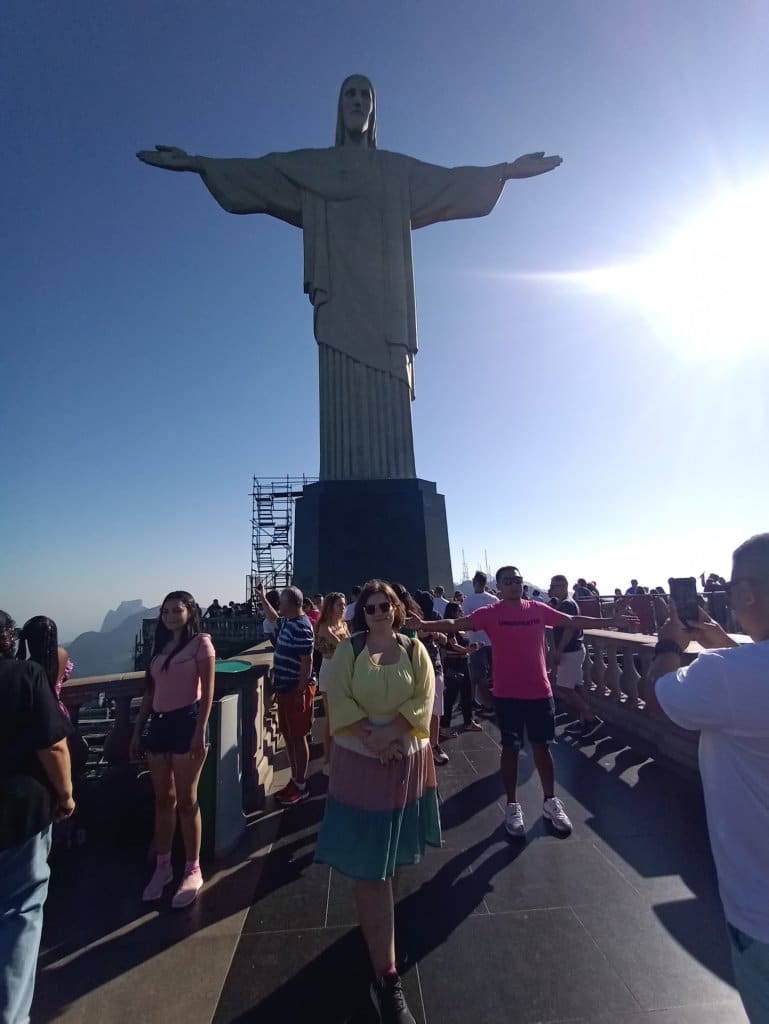
- Home
- News & Events
- SE sophomore Chelsea Maxwell experiences Brazil as Critical Language Scholarship recipient

As the 2023 spring semester wrapped up on the Durant campus of Southeastern Oklahoma State University, Chelsea Maxwell was exploring new challenges and opportunities as she looked ahead to her second year as a Southeastern student.
The computer information systems major knew that she wanted to explore an opportunity that would eventually give her a leg up in the job market after she graduates. With the assistance of Dr. Meg Cotter-Lynch, professor of English at Southeastern and director of the Honors Program, and Dr. Kyle Lincoln, assistant professor of History at Southeastern, Chelsea applied for – and was selected to participate in – the U.S. Department of State’s Critical Language Scholarship to study Portuguese in Rio de Janeiro, Brazil, during the summer of 2023.
The CLS Program is part of a U.S. government effort to increase the number of Americans studying critical foreign languages. CLS scholars gain language and cultural skills that enable them to contribute to U.S. economic competitiveness and national security. The CLS Program provides opportunities to U.S. undergraduate and graduate students to spend eight to ten weeks studying one of 14 critical languages, including Portuguese. The program includes intensive language instruction and cultural enrichment experiences to promote rapid language gains.
But why would a computer information systems major need to learn Portuguese?
“I decided that I wanted to choose a language that not many in my field would know, because I feel like that would give me a leg up in the hiring process. But also while I was looking, I realized that one language in particular – Portuguese – would take me to Brazil, which has a history of colonization similar to the United States. Because I’m Choctaw, I wanted a chance to go and hopefully get a chance to compare and contrast that experience with some indigenous people.”
With the desire to learn, a goal in mind, and having never traveled abroad, the rising sophomore from Broken Bow hopped on a plane in June, and was dropped into the massive, chaotic scene of Rio with eight weeks of eye-opening experiences ahead.
“Before we left, I made some flashcards of the survival guide that they gave us, but I really didn’t know anything. I don’t know why, but I wasn’t expecting the immediate change whenever we got there. But instantly it was just Portuguese, and it was overwhelming to say the least.”
Chelsea started her eight-week study at Pontifícia Universidade Católica do Rio de Janeiro (The Pontifical Catholic University of Rio de Janeiro or PUC-Rio) in the beginner level of the program with two other students in an immersive educational experience that included living with a host family in the Ipanema district of Rio.
“Day one, I was just nervous because this was my first time traveling out of the country, first time traveling without my parents… it was a lot. I was just very nervous. The program gave me a SIM card, but I didn’t have it at the time because I didn’t arrive with everybody else. So I had to figure out how to navigate the metro and find my way to PUC-Rio by myself with no technology. Luckily, I had Google Translate downloaded to my phone!”
For the first two weeks of the course, students and teachers were allowed to occasionally speak English to help with the class, but weeks three through eight were completely in Portuguese.

“When week three hit, I probably was more scared at that point because I knew I had to be speaking Portuguese. I wasn’t that confident in my language level skills because I was the only person there who didn’t know a secondary language. This was my first secondary language I was learning, so everybody else was starting to pick up a little bit faster than what I was. That just meant I had to work harder. But I didn’t mind that.”
For eight weeks, students had immersive class for three hours a day, with homework at night, as well as designated time to practice conversational skills. They also explored Brazil and Rio as a group, but the final two weeks of the experience was where it all came together for Chelsea.
“I went to this nearby park called Parque Lage a few times with my language partner, but I wanted to go back and explore by myself. There happened to be some indigenous vendors there who I went up to and talked to and explain to them that I’m Choctaw. We took photos together and they told me there was going to be an indigenous festival in the park the next weekend.

“I was able to go to the festival on that last weekend and I got to listen to some indigenous people speak on their experiences of what it’s like to be indigenous in Rio. I got to watch some dances and speak even more with people including some tribal council members. They asked me a lot about the Choctaw Nation and were just very curious and it was an amazing, amazing experience.
“Rio has some exhibits on indigenous people and culture, but almost all of them were closed when I was there, so I’d kind of lost hope on being able to learn about these indigenous cultures while I was there. But I happened to be in the right place at the right time and meet the right people. I’ve made friends with one of the indigenous people I met, and I talk to them every single day.”
With such a robust experience in a short amount of time, Chelsea’s appetite for learning other languages and traveling abroad has only begun.
“I never thought I would be the type of person who could learn another language. I knew that I would take a secondary language in college, but I thought I would just take it and move on. But this experience has shown me how wonderful learning another language truly is and learning about another culture along with it.

“The Portuguese language to me is very, very beautiful. It’s also a very energetic language. There were times when I saw my teacher conversing with somebody else and I thought they were fighting. They were just having a conversation and I slowly became to where I loved that kind of interaction that they were having. They used their hands all the time and I learned to love it. Now I’m in the mindset of like I want to learn how to speak Portuguese just like a carioca, which is a nickname for somebody from Rio.
“I want to speak Portuguese just like that and then maybe learn another language and their culture because it also excites me. This has definitely opened my eyes about language study and wanting to learn more.”
Chelsea hopes to receive the Critical Languages Scholarship for a second time, which is the program’s maximum. She’s continuing her Portuguese studies on Southeastern’s campus with Dr. Rolando Díaz with lessons in the early part of the semester, followed by a comparative literature class in the later portions.
The opportunity provided to Chelsea through the Critical Languages Scholarship has started a life full of travel, but Southeastern will always be “home” for her.

Chelsea is a second-generation legacy student, but that second generation is large. Chelsea’s mother, Chris, graduated from Southeastern with her bachelor’s in English education in 1995, followed by a master’s in counseling in 1998. Her two older brothers also graduated from SE, with Chance earning his bachelor’s in computer information systems in 2019 and MBA in business administration in 2020 and Chase earning bachelor’s in computer information systems in 2021 and MBA with an emphasis in management in 2022. Chase is now also a Level 2 Support Technician for the IT department at SE.
With a strong legacy connection to Southeastern, Chelsea will always have a home base as she continues her study – wherever that may lead her.
“I missed my hometown, I missed my family, I missed my friends, but this experience was something I never thought in my wildest dreams I could have,” Chelsea noted. “It made me want to do more. When I got back to campus and settled in my dorm room, I was able to rest and do some reflective thinking, and I realized how lucky I was to have this opportunity, and I can’t wait to do it again.”
All photos in this article were provided by Chelsea Maxwell